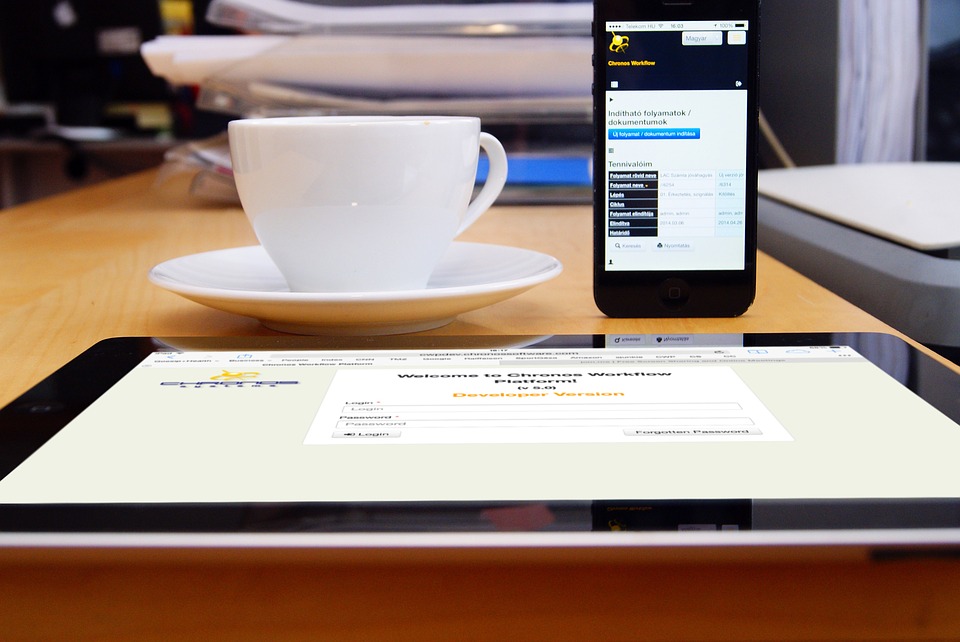There are basically only two ways for businesses to grow their bottom line, one is to increase revenues and the other is to trim costs.
Both have their place and in both cases, it makes sense to go for low-hanging fruit, in other words, quick wins which can improve your financial standing and, essentially, pay for other improvements.
These days, going paperless can save companies a lot of money both directly and indirectly.
5 Ways to Save Money & Time By Going Paperless

1# Going Paperless Shrinks Your Need For Storage Space
One of the odd features about paper is that you don’t necessarily realize just how much storage space it is taking up until you finally get rid of it, not even if you actually have filing cabinets, or cupboards, or even rooms full of the stuff.
Possibly this is because people get so used to it they just start to blank it out and forget it is even there. Once it’s gone, however, the space can become very noticeable and can be put to other purposes.
In some cases, this can mean an office reorganization with staff getting more space for themselves and for the items they actually need, thus improving productivity and potentially making it possible for companies to take on new members of staff (because they actually have room for them).
In other cases, this can mean companies being able to give up office space and thus reduce their running costs.
2# Going Paperless is a Prerequisite For Going Remote
Even if you have no real interest in going completely remote, knowing that you have the ability to do so can be a valuable insurance policy against losing access to your place of work, be it on a short-term or long-term basis.
It can also be valuable from the perspective of recruiting and retaining staff since it allows you to offer more flexibility in terms of working location.
For example, if you have a challenging role to fill, then you might want to look at it and see if it could be done wholly or substantially on a remote basis.
If so then you could vastly increase your pool of potential candidates to include people who would not have made the commute to your office on a regular basis.
Alternatively, if you have good staff and want to keep them happy, you can use remote working to make it easier for them to schedule their work around their personal commitments, thus keeping their holiday for when they actually want it.
3# Going Paperless Makes it Much Easier to Comply With GDPR
Even though we use the expression “paper trail” the truth is that it’s actually relatively difficult to keep tabs on paper documents the way we can now keep tabs on digital ones.
It’s much easier to lose paper documents and part of the reason why it’s much easier to lose paper documents is because it’s much easier to make copies of them, authorized and unauthorized to the point where companies cease to be able to keep track of what they have and therefore cease to be able to maintain effective control of it.
This is basically a GDPR disaster waiting to happen.
By contrast, going paperless allows for much stronger access controls to be applied. It also makes it possible for businesses to enlist the services of cloud providers who will be well-versed in the cybersecurity and/or to implement robust data-security controls in their own network and their own offline archival storage.
4# Going Paperless Relieves Staff of the Need to Store And/Or Track Down Physical Paper
Analogous to the previous point, trying to keep track of physical paperwork can be a real pain for staff and can wind up being a recipe for confusion and lost productivity.
For example, when documents are “works in progress”, you can have various members of staff working on various versions of the document and then wind up having to find some way to bring all those different versions together, possibly jettisoning work people had already done.
When documents are live, each person who wants to use a document needs their own copy of it, which can lead to documents multiplying and then needing to be shredded or stored.
Alternatively it can lead to work being “queued” as people wait for the resource needed to complete it.
5# Going Paperless Saves on the Costs of Consuming Paper
On the face of it, paper is generally a fairly affordable resource (at least from a financial perspective, it actually has quite a significant environmental footprint).
Specialty papers can become more expensive, but even then the average business is only likely to want the likes of photo papers, not the sort of security papers used in the production of physical money and other very niche industries.
To this, however, must be added the cost of everything which goes along with the paper, such as toner/ink, staples and paperclips, document wallets, folders and binders. In this context, it’s also worth noting that paper can breed paper.
For example, if you create documents which need to be shared then they need to be given some form of protection for transport be that internal envelopes or external envelopes and the cost of postage, even domestically, can become extremely expensive.
In this context, it’s also worth noting that, at this point, it’s unclear how Brexit will impact the cost of postage, but it’s probably safe to assume that the only way is up. It’s also worth pointing out that at this point in time email is very efficient, at least as efficient as the postal service, especially when the latter is dealing with peak volumes.
Final Words
Last but my no means least, electronic documents are simply used as needed and there is no need to guess how many to print off and no need to scrap excess copies of an old document whenever a new version is brought out.
They can also be massively easier to process since they do not need to be hand-written and therefore do not suffer from the same potential legibility issues.
More Read:
- Going Green! 5 Eco-Friendly Small Businesses in America Changing the Game
- 5 Tips for Going Green in Your Office
- 10 Green Business Ideas For Entrepreneurs
- Eco-Friendly Printing: A New Marketing Strategy for Business
Author Bio: Joe Muddiman is the General Manager at Rads Document Storage, a secure facility based in Nottingham which provides professional document management services.















